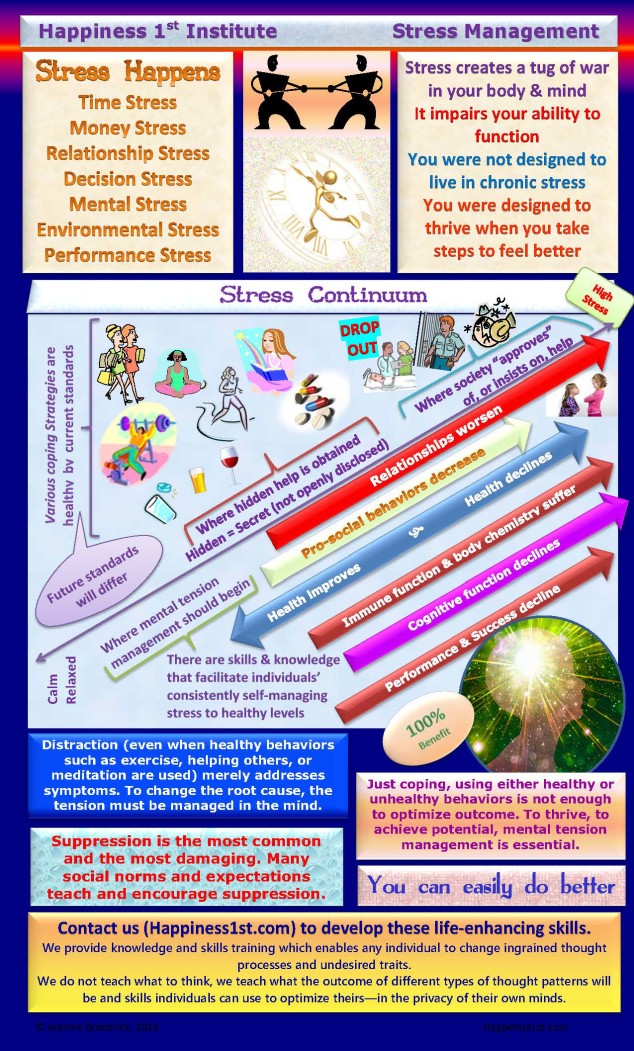“No, Giving People More Health Insurance Doesn’t Save Money” read the headline in a recent New York Times Article.
The reason preventative care is not saving money is that it is not true prevention. It’s early detection of illness and disease, not prevention in the true sense of the word.
True prevention would be Primary Prevention. Examples of Primary Prevention include washing one’s hands after engaging in activities that may expose one to germs and/or bacteria and before handling food. Another example is safe drinking water delivered to homes.
Primary Prevention is possible in healthcare. Primary Prevention is not early detection; primary prevention actually prevents the illness and/or disease from manifesting in the first place.
There is overwhelming science evincing that stress is at the root of between 67% – 99% of illness and disease (results of studies have varied). Even if it is just 67% it represents a tremendous portion of our healthcare expenses.
For 40 years the recommendations for stress management have been dose dependent and research is clear that when people need to reduce stress the most they are least likely to do so—even when they know engaging in dose-dependent stress reductions will help them feel better. The reason the vast majority of methods recommended are dose dependent is because they do not address the root cause of stress. Many recommendations increase stress, such as telling people to think positive without telling them how to do so. Another one is telling people to reduce activities when their life will not allow them to do so, which creates stress about how stressed they are.
We all know that the same situation elicits different levels of stress in different individuals and that the amount is not directly tied to how devastating the situation appears to be to the individual. The reason some individuals experience lower stress is because their minds are programmed in ways that reduce their stress because of the perspective they take. All of us have minds that are programmed. Most of the programming is completed by age 6 and happens as a natural result of being alive. But it is possible to change the programming so that it helps us instead of hinders us. Doing so increases resilience while it lowers stress. The benefits also extend far beyond health care. Stress is a significant contributing factor to other socially undesired outcomes including crime racism, teen pregnancy, divorce, and drop-out rates.
For healthcare, a positive mental attitude reduces the risk of heart disease by 50%. (Boehm, 2012) Heart disease is responsible for about 1/3 of all deaths.
Stress is a significant initial cause of mental illness.
Stress decreases our immune, digestive, and cognitive functions. Science evincing the speed of these changes using biochemical markers is definitive.
Provide society with the skills to reduce stress at the root cause and the financial benefits will far exceed the cost. The non-financial benefits will be even greater. If you don’t want to wait for society to distribute this life-saving and life-enhancing information, you can get it now in True Prevention–Optimum Health: Remember Galileo.

